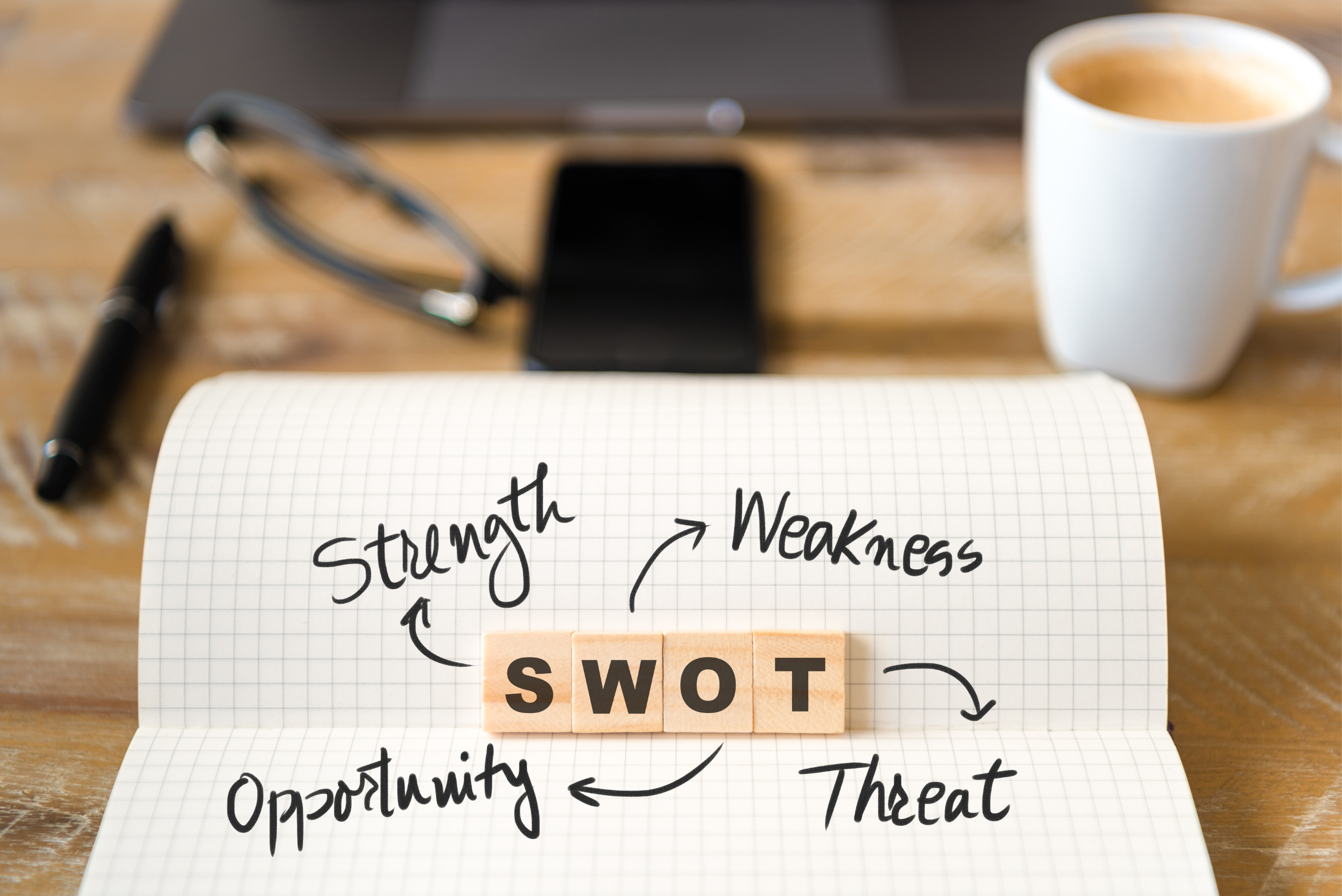If you’re looking to grow your business, figure out how to stand out from the competition or simply need to analyze the current status of your business, it’s time to do a SWOT analysis.
What is a SWOT analysis?
A SWOT analysis is a process used to identify the strengths, weaknesses, opportunities and threats of your business.
This tool allows you to: uncover opportunities in your market, identify areas you need to improve and keeps you on top of potential challenges. It also provides you with the insights needed for strategic planning.
What does SWOT stand for?
SWOT stands for:
- Strengths
- Weaknesses
- Opportunities
- Threats
Strengths
Strengths in SWOT are the internal, positive attributes of your business. Analyzing these areas allows you to be clear on what is working, so you can further leverage your strengths.
Example of SWOT Strength:
Fast turnaround: We get our orders shipped within 3-5 business days, which outpaces the competition’s average of 7-10 days.
Weaknesses
Weaknesses in SWOT are the internal, negative attributes of your business. Examining your internal weaknesses allows you to see where you need to make improvements.
Example of SWOT weakness:
Social Media Presence: We have zero presence on social media and this could be leading to declining sales and lead generation.
Opportunities
Opportunities in SWOT refers to the external, positive factors that could help your business. Knowing your opportunities allows you to leverage them in order to grow or pivot.
Example of SWOT opportunities:
Paid Social Media Campaign: To build brand awareness, we’ll run a paid ad on Instagram.
Threats
Threats on SWOT refers to the external, negative factors that could hurt your business. Knowing your threats allows you to pivot and make necessary changes to prevent negative impacts to your business.
Example of SWOT threats:
Lost Partnership: Brand partner that was driving leads, pivoted to new niche, this could cause a decline in new customers.
When to do a SWOT analysis?
Conducting a SWOT analysis is beneficial at various stages of business ownership.
A SWOT analysis is beneficial:
- Prior to launching your business to explore viability, gauge the potential market, and more.
- Before implementing a large change to explore all the factors involved.
- When you launch a new initiative, project or line of business to ensure there is need, resources, etc.
- If you’re looking to grow in order to analyze opportunities.
- Whenever you need a business health check
How to conduct a SWOT analysis?
There are a variety of ways to conduct a SWOT analysis. Whether you get your whole team involved, go through the process solo or work with a mentor/coach, remember to be open-minded and creative. The more ideas that come to the surface the better.
When it comes to the execution of the SWOT analysis, you can throw ideas on a whiteboard, map it out using platforms like Miro.com, or use checklists like this one “48 Questions to Ask in Your SWOT Analysis” from Score.org.
Why is a SWOT analysis important?
A SWOT analysis can help you improve operations, processes and plan for growth. By analyzing and identifying key areas that need your attention, you can set yourself and your team up for success with an intentional strategic plan.
Benefits of a SWOT analysis:
- Identifies areas of opportunity
- Identifies areas for improvement
- Identifies areas that might be at risk
All in all, a SWOT analysis gives you a clear picture of where your business is at so you can address factors that need your attention and create a plan to move forward.
Leverage Support
A SWOT analysis is an effective tool for creating a business roadmap, but it can be an overwhelming process as you have to look at the good, the bad and the ugly of your business. It can be helpful to involve a business coach to help you work through this process to stay positive, realistic and strategic. Need help? Book a free business coaching session with one of your coaches to help you get the most out of this process.


